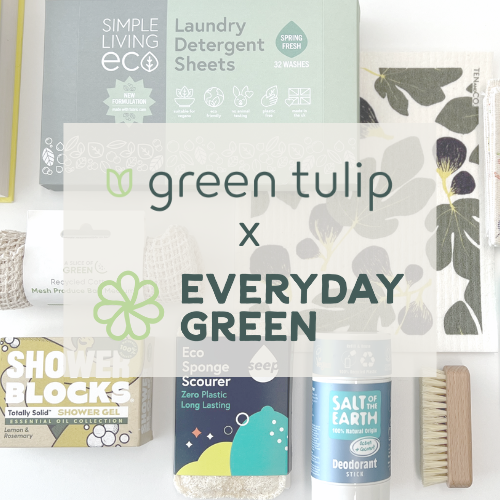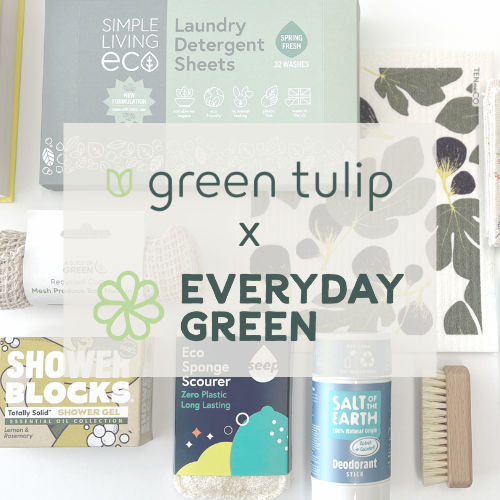Zero Waste is a Myth
Each month Kate, our resident sustainability specialist, tackles an eco topic. This month, she talks about why she thinks the idea of a fully zero waste lifestyle is a myth and how reducing waste is the only realistic option for us to aspire to.
In recent years zero waste has become a bit of a buzzword, but do you know what? I don't believe in it. In today's society, zero waste is not a realistic or achievable goal for the majority of us (myself included!).
Here's why:
The idea of zero waste is like the idea of perfection, it doesn't exist, and striving for an unachievable goal is just setting us up to fail.
One study, published in the journal of Environmental Education Research, found that people who tried to go zero waste often experienced feelings of overwhelm, guilt, and frustration. I don't want any one of us to feel this.
Another study found that only 15% of people who tried to live zero waste for a year achieved their goal. It found that people who were more educated and had higher incomes were more likely to be successful at zero waste living. But with the current cost of living crisis, 59% of UK shoppers have been forced to choose less sustainable but cheaper options as prices increase.
Here's my 4 easy steps to reduce your household waste:
- Reduce what you buy. That's right, we're a shop who wants you to buy less! The average household has 30 bottles of cleaning products, and I'm here to tell you now - you do not need that many - now or ever.
- Reuse what you have. The very best thing you can do for the environment is to reuse what you already have until it can be used no more, BEFORE you go ahead and buy something new. Every time we reuse our products, their environmental impact goes down, so our goal should always be to reuse the products we’ve already got as many times as possible. Those cleaning products lurking under the sink? Use them up. Then continue to reuse that 'single-use' plastic bottle until it falls apart and the only option left is to recycle it. Only then consider buying a more sustainable reusable option to replace it with.
- Refill rather than repurchase the whole product. There are so many options now which allow you to buy products naked or with reduced packaging. Food purchased from a local refill store is the obvious one, and there are also refill options online, such as concentrated cleaning products that you pop into an old spray bottle and dilute at home, and refillable deodorant sticks. This reduces the need for single use plastic to house them in, and also the amount of product that needs shipping.
- Can't buy a refill? Look at other packaging options and how they can be disposed. Home composting packaging material is better than sending it for recycling because the energy and resources required to collect, sort, clean and render the material reusable is still substantial (although less than producing virgin material) and it leads to a lower quality product, whereas home composting packaging materials benefits your composter and returns organic materials to enrich your soil. We have a Zero Waste collection at Green Tulip where the criteria for the products in it is that they genuinely leave no trace - any product packaging that can be home composted and products that are biodegradable and can also be home composted at the end of their lives.
Remember, small steps can lead to significant results. So, stop being overwhelmed and daunted by unachievable zero waste goals and enjoy the small wins of reducing your everyday waste, just a little at a time.
And if you fancy my 100 ideas for saving money and the planet you are welcome to read my guide here.





